
Himself
Under the guise of the increasing threat of Communism and the ever-evolving bureaucracy of Philippine democracy, Marcos Sr. declared Martial Law in an attempt to hold on to subjugate the rise of crime and injustice. But does history narrate a fate that actualized his vision to bring peace? Or do the books echo a paradox? A reality where he fought fire with fire — communism with a strongarm that riddled it with bullets and bloodshed.

Self - Politician (archive footage)
In 1945, two young American soldiers, brothers Budd and Stuart Schulberg, are commissioned to collect filmed and recorded evidence of the horrors committed by the infamous Third Reich in order to prove Nazi war crimes during the Nuremberg trials (1945-46). The story of the making of Nuremberg: Its Lesson for Today, a paramount historic documentary, released in 1948.
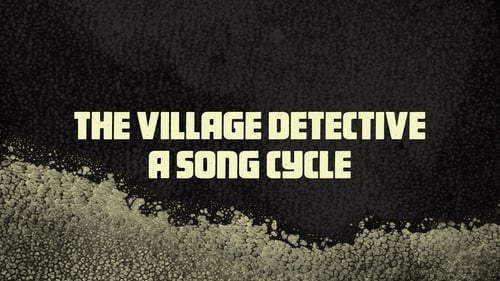
Self - Politician (archive footage)
Atlantic Ocean, off the coast of Iceland, July 9, 2016. The surprising discovery of a canister —containing four reels of The Village Detective (Деревенский детектив), a 1969 Soviet film—, caught in the nets of an Icelandic trawler, is the first step in a fascinating journey through the artistic life of film and stage actor Mikhail Ivanovich Zharov (1899-1981), icon and star of an entire era of Russian cinema.

Self (archive footage)

Self - Politician (archive footage)
The story of the cross destiny of George Orwell (1903-50) and Aldous Huxley (1894-1963), the genius authors of the two most groundbreaking novels of anticipation of the 20th century: 1984 and Brave New World; two lucid witnesses of the maledictions of the modern world whose novels have found a considerable echo with our time.

Self - Politician (archive footage)
Ukrainian journalist Katya Soldak, currently living in New York City and working for Forbes magazine, chronicles Ukraine's history: its strong ties to Russia for centuries; how it broke away from the USSR and began to walk alone; the Orange Revolution, the Maidan Revolution, the Crimea annexation, the Donbass War; all through the eyes of her family and friends settled in Kharkiv, a large Ukrainian city located just eighteen miles from the Russian border.

Self (archive footage)
A contemporary history of Korea(s) from a unique point of view that embraces the inner history of both South and North Korea in a single narrative.
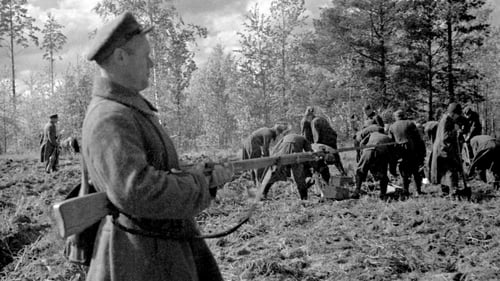
Self (archive footage)
The Katyn massacre, carried out by the Soviet NKVD in 1940, was only one of many unspeakable crimes committed by Stalin's ruthless executioners over three decades. The mass murder of thousands of Polish officers was part of a relentless purge, the secrets and details of which have only recently been partially revealed.
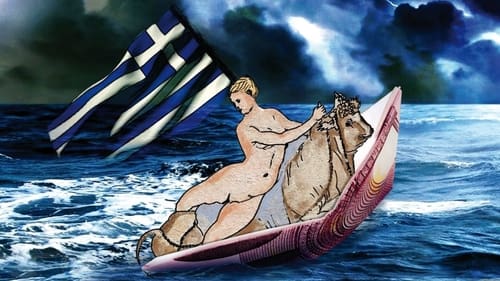
Self (archive footage)
A journey through Greece and Europe’s past and recent history: from the Second World War to the current crisis. It is a historical documentary, a look into many stories.
«If Democracy can be destroyed in Greece, it can be destroyed throughout Europe»
Paul Craig Roberts
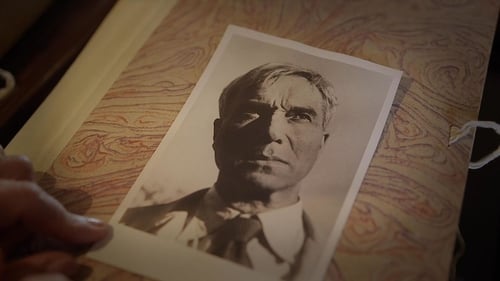
Self - Politician (archive footage)
As Russian writer Boris Pasternak (1890-1960) thinks it is impossible that his novel Doctor Zhivago is published in the Soviet Union, because it supposedly shows a critical view of the October Revolution, he decides to smuggle several copies of the manuscript out of the country. It is first published in 1957 in Italia and the author receives the Nobel Prize in Literature in 1958, which has consequences.
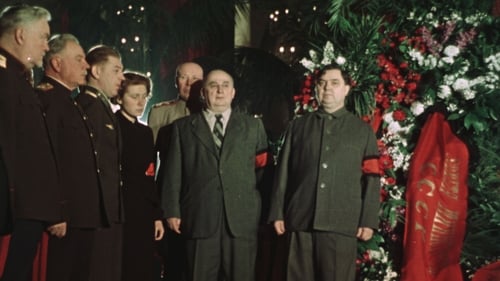
Self (archive footage)
The enigma of the personality cult is revealed in the grand spectacle of Stalin’s funeral. The film is based on unique archive footage, shot in the USSR on March 5 - 9, 1953, when the country mourned and buried Joseph Stalin.
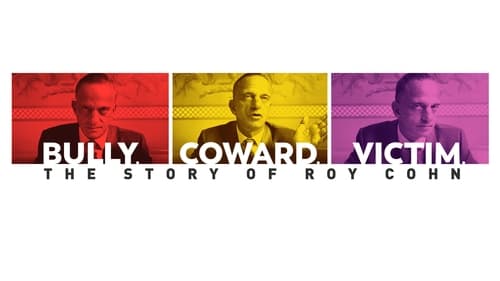
Self (archive footage)
Legendary and controversial attorney Roy Cohn was a power broker in the rough and tumble world of New York City business and politics. Senator Joseph R. McCarthy’s top counsel during investigations into Communist activities in the 1950s, Cohn is also known for being Donald Trump’s former personal lawyer, fixer and mentor. Focusing on key periods of his life, and drawing on extensive, newly unearthed archival material, a new documentary on Cohn’s life will debut on HBO in 2019.
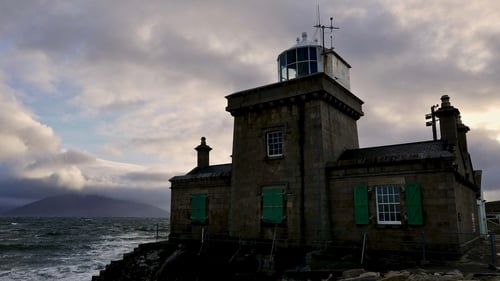
Himself (archive footage)
Ireland, June 1944. The crucial decision about the right time to start Operation Overlord on D-Day comes to depend on the readings taken by Maureen Flavin, a young girl who works at a post office, used as a weather station, in Blacksod, in County Mayo, the westernmost promontory of Europe, far from the many lands devastated by the iron storms of World War II.

Self (archive footage)
Shedding new light on a geopolitical hot spot, the film — written and produced by John Maggio and narrated by Korean-American actor John Cho — confronts the myth of the “Forgotten War,” documenting the post-1953 conflict and global consequences.

Self (archive footage) (uncredited)
How could Hitler and Stalin, sworn ideological enemies, come to a secret pact in 1939? The captivating and detailed story of the diplomatic fiasco that led to the signing of the Nazi-Soviet pact and its devastating consequences.

Self - Politician (archive footage)
Vladimir Ilyich Ulyanov, better known as Lenin, is remembered as the instigator of the October Revolution of 1917 and, therefore, as one of the men who changed the shape of the world at that time and forever, but perhaps the actual events happened in a way different from that narrated in the history books…
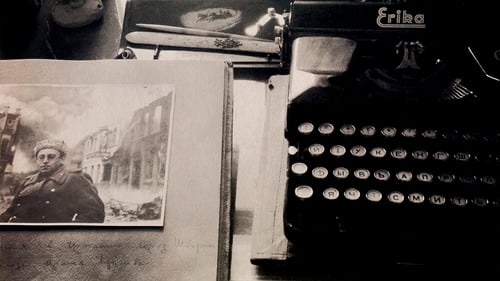
Self - Politician (archive footage)
The convoluted and moving story of Russian writer Vassili Grossman (1905-64) and his novel Life and Fate (1980), a literary masterpiece, a monumental and epic account of life under Stalin's regime of terror, a defiant cry that the KGB tried to suffocate.
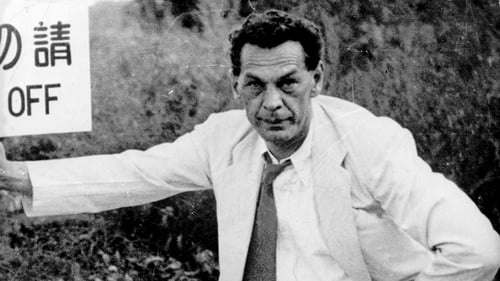
Self - Politician (archive footage)
An account of the troubled life of Richard Sorge (1895-1944), a Soviet spy of German origin who played a decisive role in the outcome of World War II.
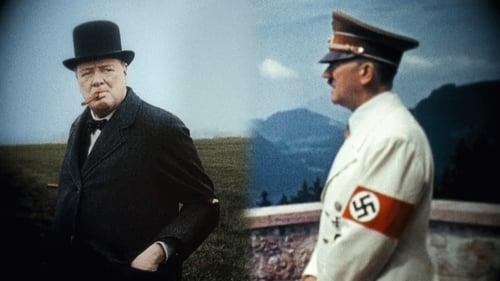
Self - Politician (archive footage)
Winston Churchill, one of the most revered men of the twentieth century. Adolf Hitler, one of the most hated leaders in contemporary history. Between 1940 and 1945, these two enormously contradictory personalities faced each other in both politics and war. A clash of giants whose story begins in the trenches of the World War I and ends with the debacle of the World War II.

Self (archive footage)
Starting in 1881 this film shows the personal battle between Lenin's Ulyanov family and the royal Romanovs that eventually led to the Russian revolution.

Himself - Politician (archive footage)
Spain, 1937. Ramón Mercader, a young communist combatant, is recruited and trained by the Soviet intelligence service to participate in a top secret mission ordered by the ruthless dictator Joseph Stalin: the assassination of his former political rival, Leon Trotsky, who is living in exile in Mexico.

Joseph Stalin
For 50 years, Berlin was the symbol of the Cold War. The city at the heart of the intelligence war between the US and the Soviet bloc. Thousands of KGB or CIA, agents observed each other, cogs in the biggest information war in history.

Self (archive footage)
During the worst days of World War II, the British government asks the mathematician Alan Turing to unravel the mysteries of the German Enigma encryption machine, an impossible task to accomplish without the invaluable information that Hans-Thilo Schmidt, a disenchanted but greedy German citizen, had been handing over to the French secret services since 1931.
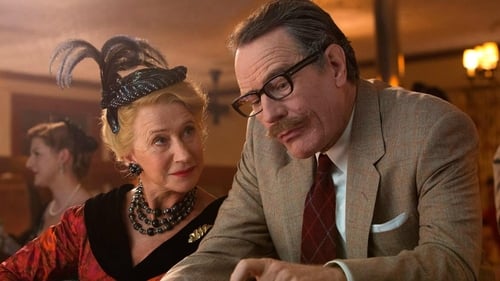
Self (archive footage) (uncredited)
The career of screenwriter Dalton Trumbo is halted by a witch hunt in the late 1940s when he defies the anti-communist HUAC committee and is blacklisted.

(archive footage)
A shock wave started as Stalin's daughter Svetlana Iosifovna Alliluyeva fled to the West. During her childhood, she remained at the center of power and was her father's favorite child. However, her life was overshadowed by death and violence. Her mother and brother died, family members were murdered, and her partner was exiled by Stalin. The Iron Curtain was an obstacle in her family dream. This documentary shows for the first time interviews with friends and relatives, exclusive photos and documentation, as well as the last and never broadcast interview with Alliloejeva.
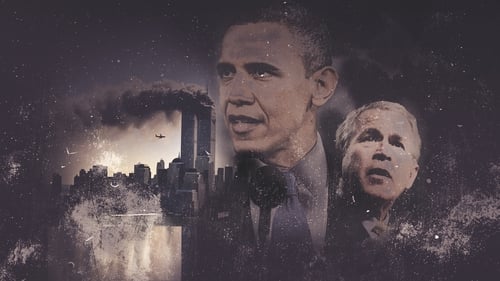
Self (archive footage)
A look at the War on Terror and the threat it's causing to our civil liberties and political discourse. Academy Award nominee James Cromwell presents Janek Ambros' directorial debut. The feature doc tackles the War on Terror's impact on civil liberties and the strange coalition it's creating between the progressive left and libertarian right. The doc examines the NSA, drones, the war on journalism and other encroachments on civil liberties started by the Bush era and expanded by the Democratic establishment.

Self (archive footage)
On the 29th of August 1949, the USSR set off their first atomic bomb, just four years after the Americans. The speed with which they achieved this surprised the world. What nobody knew was that it was the result of espionage. At the centre of the operation was a very unusual female spy, Elizabeth Zaroubin, in a story worthy of the best spy novels ever written.

Self (archive footage)
How, in 1945, after the end of World War II and the fall of the Nazi regime, the defeated were atrociously mistreated, especially those ethnic Germans who had lived peacefully for centuries in Germany's neighboring countries, such as Czechoslovakia and Poland. A heartbreaking story of revenge against innocent civilians, the story of acts as cruel as the Nazi occupation during the war years.

Self (archive footage)
In the last 250 years, free-market ideology has played a central role in the development of the logic and rhetoric that have influenced the daily life of populations throughout the world. It was cornered for a few decades during the twentieth century in favor of a social economy for the public interest, and then returned to the limelight in the last thirty years of the century to dominate the logics that drive world economies, doing the favor of the elites at the expense of 99%. Through the testimony of six people informed about the facts, Laissez-faire offers a historical and ideological perspective through which to identify the fundamental problems of the economic mechanism on which societies are based.

Joseph Vissarionovich Stalin
For 20 years, theirs was an ideological duel between two visions of Communism; a political duel, a duel for power, and above all, a duel to the death. By having Trotsky exiled and finally assassinated, Stalin gained sole control of Russia and became the unassailable dictator of the country.
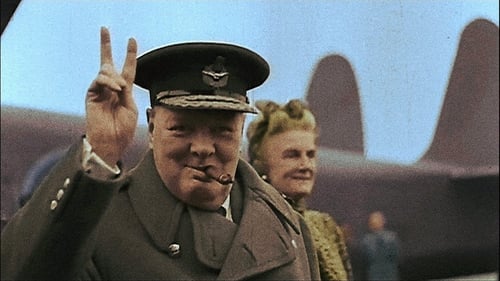
Self (archive footage)
A new look at the public and private life of one of the most important statesmen in the history of Europe: Winston Churchill (1874-1965), soldier, politician, writer, painter, leader of his country in the darkest hours, winner of the Nobel Prize in Literature, a myth, a giant of the 20th century.

Self (archive footage)
March 9th, 1953, 5 million people attend Stalin’s funeral. A revolutionary lacking in both charisma and stature, Stalin came to power almost by chance, and his 30-year reign saw him become the most Machiavellian and bloodthirsty of dictators. The man who insisted on being called “The Father of the People” massacred his own countrymen, and was responsible for the death of some 20 million people. Soon forgetting his former ideological stance, he mercilessly crushed anyone who opposed him, in both word and deed. His camps for reform through hard labor – known as “gulags” – turned 18 million Russians into slaves. He not only murdered his opponents but his best friends too, and even sometimes members of his own family. His cruelty knew no bounds. Through colorized archive material rich in previously unseen footage, and many accounts from the period including some from Stalin himself, this documentary tells the story of a man who turned a dream into a nightmare.

Himself (archive footage)
In the 1930’s, the workers of the underground, headed by brigades of writers, are in charge to write in real time "the history of the Moscow Metro". Based on their narratives, partially unpublished, the film recounts the first lines construction of the most beautifiul underground in the world, in the light of this "big literary Utopia", stoped by the purges of 1937-38.

Himself (archive footage)
The documentary "Reza Shah" begins with the rise of Reza Khan to power and looks at his reign from beginning to the end.

Self (archive footage)
Oliver Stone charts the history of the United States from the Second World War to the present.

Joseph Stalin
This is an interesting documentary about Stalin, his rise to power, and the invasion of the USSR by Germany in WWII. It's split into two parts, the first a general overview of the early history. The second part is the details of WWII and after. David Reynolds does an excellent job of explaining what happened with snippets from diaries, letters and other contemporaneous accounts. Well-assembled historical work.

Self (archive footage)
Based on the story of Americas enigmatic career of one of the revered architects of the modern world - icon, screen star, and two-term president, Ronald Reagan.

Self (archive footage)
The Spanish Civil War (1936-1939) caused a great impression on the lives of most of the American artists of that era, so many movies were made in Hollywood about it. The final defeat of the Spanish Republic left an open wound in the hearts of those who sympathized with its cause. The eventful life of screenwriter Alvah Bessie (1904-1985), one of the Hollywood Ten, serves to analyze this sadness, the tragedy of Spain and its consequences.
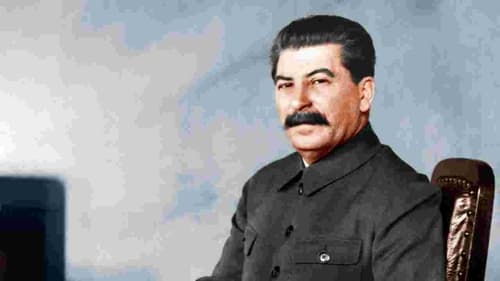
Himself (archive footage)
January 1953: On the eve of his death Stalin finds himself yet another imaginary enemy: Jewish doctors. He organizes the most violent anti-Semitic campaign ever launched in the USSR, by fabricating the "Doctors' Plot," whereby doctors are charged with conspiring to murder the highest dignitaries of the Soviet Regime. Still unknown and untold, this conspiracy underlines the climax of a political scheme successfully masterminded by Stalin to turn the Jews into the new enemies of the people. It reveals his extreme paranoia and his compulsion to manipulate those around him. The children and friends of the main victims recount for the first time their experience and their distress related to these nightmarish events.
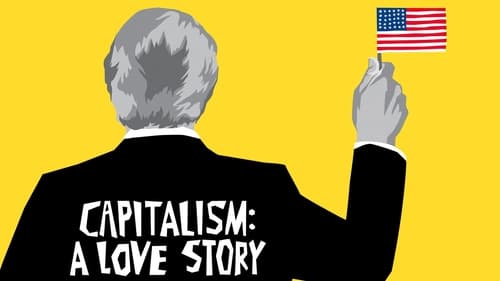
Self (archive footage)
Michael Moore comes home to the issue he's been examining throughout his career: the disastrous impact of corporate dominance on the everyday lives of Americans (and by default, the rest of the world).

Self (archive footage)
A double portrait of two dictators who were thousands of miles apart but were constantly fixated on each other.

Himself
What kind of world power is Iran becoming, and how will Western countries deal with it?

(archive footage)
Svetlana Parshina was deeply moved by her childhood reading of Twenty Letters to a Friend by Svetlana Alliluyeva, Joseph Stalin's daughter. Years later, learning that the now 82-year-old was living incognito in a Madison, Wisconsin retirement home, Parshina phones and requests an interview. After repeated denials, and only after insisting upon certain conditions, the now-82-year-old Alliluyeva finally consents to a rare filmed interview in which she discusses her education, marriages, her children, the development of her own humanistic philosophy, her CIA-assisted defection to the U.S., and her skeptical views on the competing Cold War ideologies. In more intimate moments, she discusses her childhood, her nanny, the suicide of her mother, her brothers Vasily and Yakov (who died in a Nazi concentration camp) and, of course, her famous father, who most Soviets saw as "a living God."

Self (archive footage)
Fifty years ago, at the height of the Cold War, the USSR launched Sputnik, the first satellite to orbit the earth, bringing America to its knees in awe - then fear. Initially thrilling as a marvel of science, Sputnik was soon viewed by America a weapon of mass destruction.

At the tender age of sixteen Nadezhda Alliluyev married Joseph Stalin, twenty three years her senior. Throughout their fourteen years of family life, Nadezhda stood by as Stalin transformed from the ordinary revolutionary into the unlimited dictator of Russia - a semi-god, whose portraits replaced Christian orthodox icons in the corners of peasant's huts. One morning she was found dead in her bed, revolver by her side. Up to this day, historians continue the heated debate as to whether she had killed herself or was murdered by Stalin. Tsukerman's film is an attempt to solve the riddles of the not-so-distant past, weaving stories within stories and blending commentary from remaining relatives, friends, and historians with rare archival footage. The film provides a fascinating overview of the early history of the USSR while simultaneously exploring the myriad questions surrounding this complex relationship.

Self (archive footage)
An examination of the paranoia, cold-bloodedness, and sadism of two of the 20th century's most brutal dictators and mass murderers: Adolf Hitler and Joseph Stalin.

Self (archive footage)
Since the late 18th century American legal decision that the business corporation organizational model is legally a person, it has become a dominant economic, political and social force around the globe. This film takes an in-depth psychological examination of the organization model through various case studies. What the study illustrates is that in the its behaviour, this type of "person" typically acts like a dangerously destructive psychopath without conscience. Furthermore, we see the profound threat this psychopath has for our world and our future, but also how the people with courage, intelligence and determination can do to stop it.

Self (archive footage)
The 1972 Olympic men's basketball final, in which Team USA was accorded their first ever loss since the sport was adopted in competition, was one of the most controversial events in history the history of the Games.

Self (Archive)
In June 1941, Hitler broke the golden rule of warfare never to fight on opposite fronts and marched into the Soviet Union. What would drive him to make the most catastrophic mistake of World War II? This acclaimed four-part series investigates what led to the largest military operation in history - and the bloodiest. Assisted by leading historians and granted unique access to Eastern film archives and to both Soviet and German participants, War of the Century is the definitive series on a war that shaped the borders and attitudes of Europe for the second half of the 20th Century.

Self (archive footage)
Human Remains is a haunting documentary which illustrates the banality of evil by creating intimate portraits of five of the 20th century's most reviled dictators. The film unveils the personal lives of Adolf Hitler, Benito Mussolini, Joseph Stalin, Francisco Franco and Mao Tse Tung. We learn the private and mundane details of their everyday lives -- their favorite foods, films, habits and sexual preferences. There is no mention of their public lives or of their place in history. The intentional omission of the horrors for which these men were responsible hovers over the film.
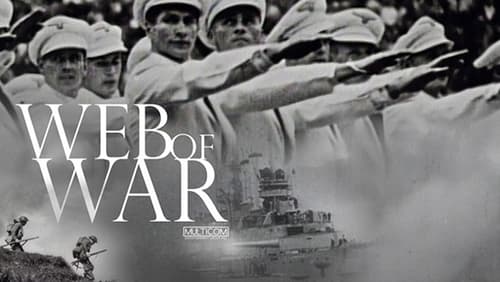
Self (archive footage)
The stories of the battles that brought together a Polish cavalry officer, a Canadian captain, and a polish underground member are told by the very same Canadians who survived them.

Self

Self (archive footage)
This is a rare look at one of the worst horror stories in the long infamous history of warfare. This series features captured German and Russian film footage, much of which has never been seen before. For decades the Cold War prevented us from looking closely at what really happened between the Russians and the Germans on the Eastern Front during World War II. More than a struggle between nations, it pitted maniacal tyrant against maniacal tyrant, evil ideology against evil ideology. The lives of tens of millions of human beings were consumed by its raging hatreds and appalling indignities. One in every ten Russians died. One in every four Poles died. Whole divisions of Italians, Romanians, Hungarians disappeared with barely a trace. An average of 17,800 people died on every single day and this, the war on the Russian German Front, lasted for 1,400 days. This series features captured German and Russian film footage, much of which has never been seen before.

The Island of the Dead is a film about the demise of the Russian Epocha Modern. The symbol of this culture was the legendary Russian film star Vera Kholodnaya, who evoked a poetic image of the young urban woman on the silver screen. Her death in 1919, shrouded in tragedy and mystery, put a symbolic end to the pre-Revolutionary period. The Island of the Dead is composed of fragments from numerous films from this period, juxtaposed with other contemporary artistic expressions such as music and painting. Kovalov shows convincingly how the fragile beauty of the Russian Epocha Modern had to make way for the pressure of Futurism, Constructivism and other 'progressive trends', and how these '-isms' were then also relegated to the melting pot to be remoulded by totalitarian norms.

archive footage
About the history of the contraceptive tool and reminds us of the importance of using a condom in combating sexually transmitted diseases.

This controversial documentary created a storm in Russia by taking the cloak off a violent, repressive period of Soviet history. Filmmaker Semyon Aranovich found the last surviving personal bodyguard of Joseph Stalin, Alexey Robin, who began working for the dictator in the 1930s.

The sequel to Film Threat founder Chris Gore's video mixtape Cathode Fuck, T.V. Sphincter focuses more on death, sex, and the bizarre, similar in style to a Mondo/Death film.

Himself (archive footage)
With the help of government-issued pamphlets, an elderly British couple build a shelter and prepare for an impending nuclear attack, unaware that times and the nature of war have changed from their romantic memories of World War II.

Himself (archive footage) (uncredited)
After WW II many young people arrive to Zagreb, among them a young worker Sonja Kacar. She is supposed to participate in the construction of the first generator in the Rade Koncar factory. Because there aren't enough experts and materials in Yugoslavia, the factory counts on help from fellow communist countries, Czechoslovakia and Soviet Union. However, after the Inform Bureau's resolution this help is no longer available. Sonja experiences a great intimate disappointment because Stjepan, who she is in love with, supports Stalin.

Himself
In 1978, just after Le fond de l'Air Est Rouge, which mercilessly analyzed the previous ten years of the revolutionary left's momentum until its collapse, Chris Marker made this complementary piece entitled Quand le Siècle a Pris Forme (Guerre et Révolution).
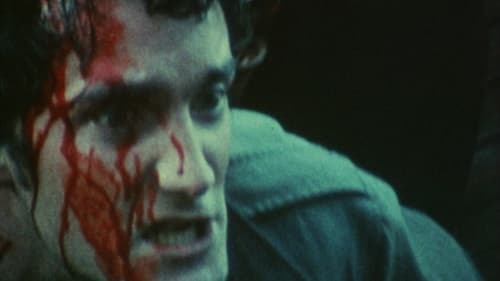
Self (archive footage) (uncredited)
French essay film focusing on global political turmoil in the 1960s and '70s, particularly the rise of the New Left in France and the development of socialist movements in Latin America.
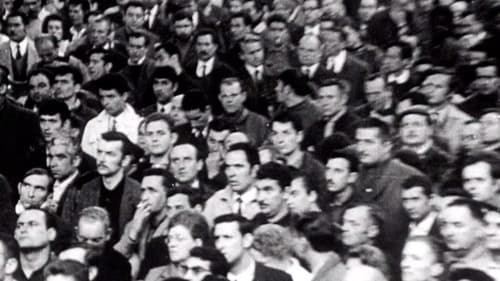
Self (archive footage)
Guy Debord's analysis of a consumer society.
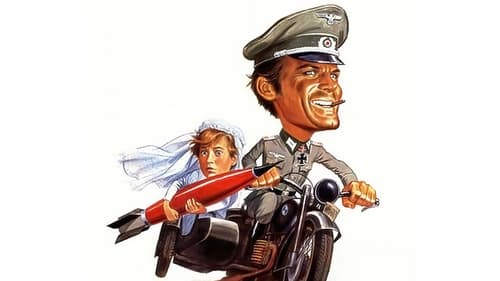
Self (archive footage) (uncredited)
A waitress helps a scientist flee the Nazis.

Philosophical essay about the October Revolution of 1917 in Russia, its influence on the destiny of the world in the 20th century.

Self (archive footage) (uncredited)
Documentary compiled from archives and accompanied by a poet's commentary, shows the sweep of modern Italian history from 1911 to 1961, centering on the conditions leading to Fascism and the post-WWII reaction to the Fascist experience.

March 9th, 1953. A gray, sad day. Clouds float low over the Kremlin towers. A city that unrecognizably grew, prettier and matured - this Moscow froze in solemn grief. The country escorts its father and leader, Joseph Stalin.

himself
The Albanian people mourn the death of Stalin.

Self (archive footage)
Compilation film about a very German first half of the 20th century.

Self (archive footage)
Documentary filmmaker Nicole Vedre's first semi-fictional feature was released in France in 1949 as La Vie Commence Demain. The film made it to the U.S. in 1952 as Life Begins Tomorrow. Made in cooperation with UNESCO, the film speculates on the future of mankind after the advent of Atomic Energy. Many prominent French artists and intellects contribute to the narration: Jean-Pierre Aumont plays The Man of Today, Andre Labarthe is the Man of Tomorrow, and Jean-Paul Sartre, Daniel Agache, Jean Rostand, Le Corbusier, Pablo Picasso and Andre Gide are respectively seen as "The Existentialist," "The Psychiatrist,' "The Biologist," "The Architect," "The Artist" and "The Author" (talk about typecasting!) Film clips of hospitals, schoolrooms, scientific laboratories, and even nightclubs are woven into Vedre's fascinating tapestry.
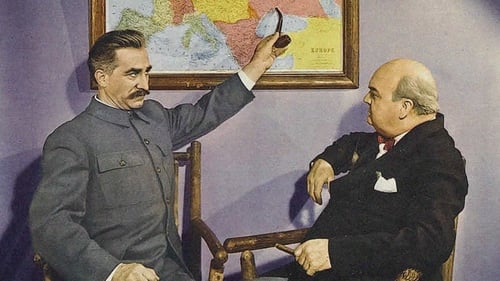
Joseph Stalin (archive footage) (uncredited)
Ambassador Joseph Davies is sent by FDR to Russia to learn about the Soviet system and returns to America as an advocate of Stalinism.

Himself (archive footage)
An anti-Japanese propaganda film produced during World War II.

(archive footage)

Self (archive footage)
A documentary about the threat of war breaking out in Europe, focusing on Hitler, Stalin and Mussolini.

Himself
The film is about the life and work of Grigory Ordzhonikidze Konstantinoviche, an important personality in both the Communist Party and the Soviet state. The film includes speeches by his bereaved friends who attended his funeral. In 1937, after the unexpected death of Sergo Ordzhonikidze, Vertov received an urgent order from the government to produce a film about the life of Ordzhonikidze. He was ordered to work together with Yakov Bliohom and the director of the film "Battleship Potemkin" distributed by Goskino (Soviet State Committee for Cinematography).
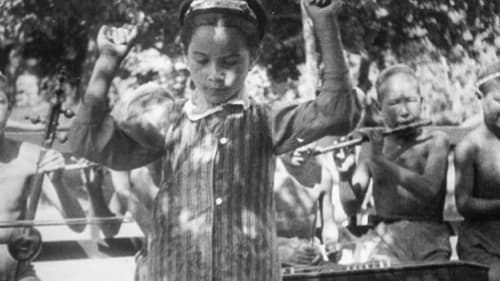
Himself (archive footage)
This documentary, made up of 3 episodes, is based on three songs sung by anonymous people in Soviet Russia about Vladimir Ilyich Lenin.

Himself (archive footage)
Dziga Vertov-directed Soviet newsreel made to commemorate the first anniversary of the death of Vladimir Ilich Lenin (21st January 1924 - 1925) drawn from 'The Final Journey', a Pravda feuilleton written on the occasion of Lenin's funeral by the man who had introduced Vertov to cinema, Mikhail Koltsov. Contains: First anniversary of Lenin's death: 1. Assassination attempt on Lenin and Soviet Russia's progress under his leadership / 2. Lenin's illness, death and funeral / 3. The year after Lenin's death

Joseph Stalin
An archive based short on the Military Industrial Complex.



















































